
Exploring the Timeless Charm of Casco Antiguo, Alicante
Nestled in the heart of Alicante, Casco Antiguo is a delightful blend of history, culture, and vibrant local life. This historic quarter, known for its narrow, winding streets and charming old-world architecture, offers a glimpse into the city's rich past while providing plenty of modern amenities for visitors. The neighborhood's picturesque streets are lined with colorful houses adorned with blooming flowerpots, creating a picturesque setting that is perfect for leisurely strolls and photo opportunities. One of the highlights of Casco Antiguo is the majestic Santa Bárbara Castle, perched high above the city on Mount Benacantil. This ancient fortress offers panoramic views of Alicante and the Mediterranean Sea, making it a must-visit spot for history buffs and photography enthusiasts alike. The castle's fascinating exhibits and well-preserved structures provide a captivating insight into the region's past. Casco Antiguo is also home to a variety of quaint cafes, tapas bars, and local shops, where you can sample delicious Spanish cuisine and purchase unique souvenirs. The lively Plaza del Ayuntamiento is a central hub of activity, hosting various events and markets throughout the year. Whether you're exploring the historic landmarks, savoring the local flavors, or simply soaking in the charming atmosphere, Casco Antiguo promises an unforgettable experience for every traveler.
Local tips in Casco Antiguo
- Visit Santa Bárbara Castle early in the morning or late in the afternoon to avoid the crowds and enjoy the best light for photography.
- Wear comfortable shoes, as the narrow streets and hills can be challenging to navigate.
- Try the local tapas at one of the neighborhood's traditional bars for an authentic taste of Alicante.
- Check out the local events calendar at Plaza del Ayuntamiento to catch a market or cultural event during your visit.
Exploring the Timeless Charm of Casco Antiguo, Alicante
Nestled in the heart of Alicante, Casco Antiguo is a delightful blend of history, culture, and vibrant local life. This historic quarter, known for its narrow, winding streets and charming old-world architecture, offers a glimpse into the city's rich past while providing plenty of modern amenities for visitors. The neighborhood's picturesque streets are lined with colorful houses adorned with blooming flowerpots, creating a picturesque setting that is perfect for leisurely strolls and photo opportunities. One of the highlights of Casco Antiguo is the majestic Santa Bárbara Castle, perched high above the city on Mount Benacantil. This ancient fortress offers panoramic views of Alicante and the Mediterranean Sea, making it a must-visit spot for history buffs and photography enthusiasts alike. The castle's fascinating exhibits and well-preserved structures provide a captivating insight into the region's past. Casco Antiguo is also home to a variety of quaint cafes, tapas bars, and local shops, where you can sample delicious Spanish cuisine and purchase unique souvenirs. The lively Plaza del Ayuntamiento is a central hub of activity, hosting various events and markets throughout the year. Whether you're exploring the historic landmarks, savoring the local flavors, or simply soaking in the charming atmosphere, Casco Antiguo promises an unforgettable experience for every traveler.
Iconic landmarks you can’t miss
Castell de Santa Bàrbara
Discover Castell de Santa Bàrbara, a historical castle in Alicante offering stunning views and rich cultural heritage.
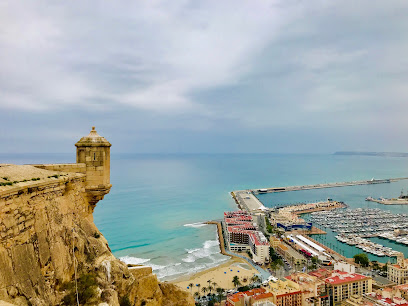
Cocatedral de Sant Nicolau de Bari d'Alacant
Explore the rich history and breathtaking architecture of the Cocatedral de Sant Nicolau de Bari d'Alacant, a must-visit landmark in Alicante, Spain.
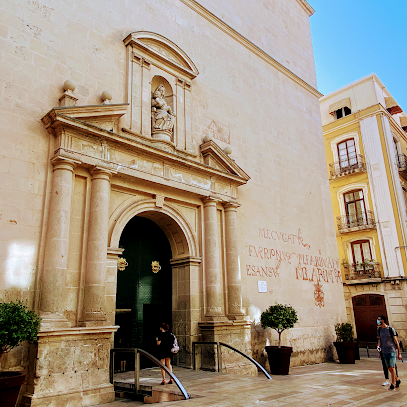
Basilica of St Mary of Alicante
Discover the historic Basilica of St. Mary of Alicante, a splendid Gothic church filled with art, spirituality, and local culture in the heart of Alicante.
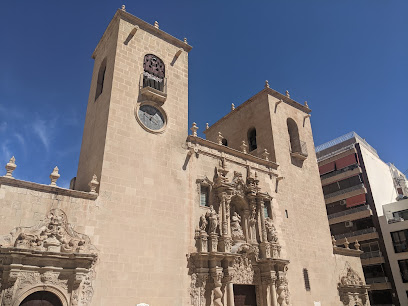
Castell de Sant Ferran
Explore the timeless beauty and history of Castell de Sant Ferran, a majestic fortress offering stunning views and rich cultural experiences in Alicante.
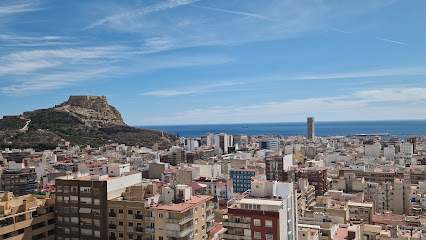
Plaça de la Porta de la Mar
Explore the lively atmosphere of Plaça de la Porta de la Mar, a charming square in Alicante where history meets modern vibrancy, perfect for every traveler.
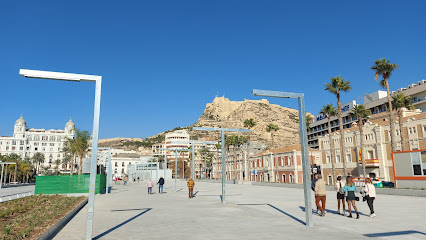
Queen's Staircase
Explore the enchanting Queen's Staircase in Alicante, a historical landmark offering stunning views and a serene escape into nature.
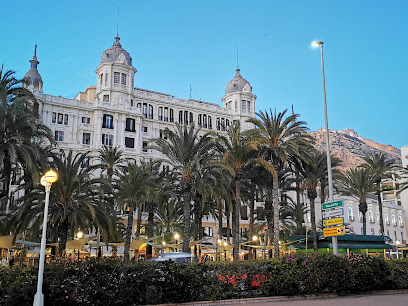
Panteó de Quijano
Discover the tranquil beauty and historical significance of Panteón de Quijano, an enchanting monument and garden in vibrant Alicante.
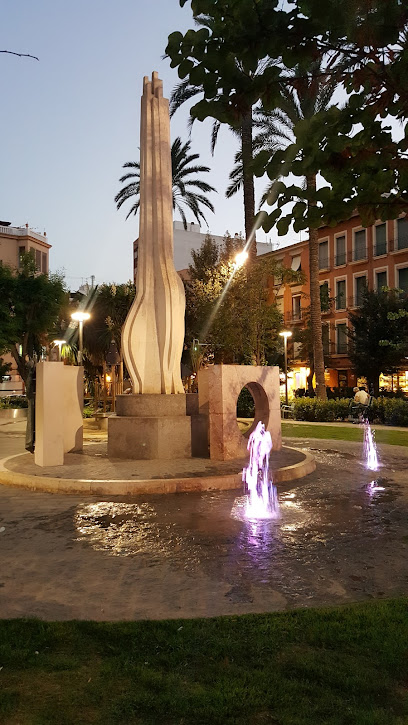
Mirador
Discover stunning views and a tranquil atmosphere at Mirador, the perfect scenic spot in Alicante for photography and relaxation.
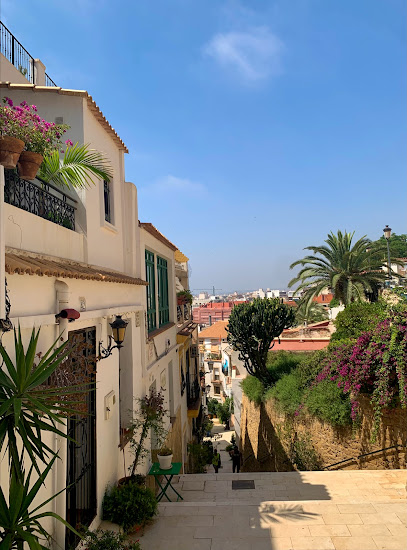
Mirador de la Santa Cruz
Experience the stunning panoramic views of Alicante from Mirador de la Santa Cruz, a peaceful retreat in the heart of the city.
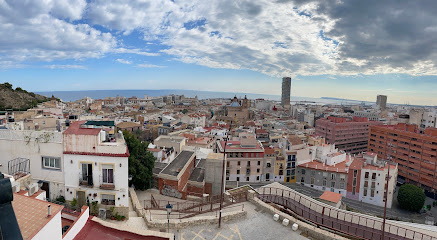
Fuente de San Antonio
Explore Fuente de San Antonio, a historic fountain in Alicante that embodies the city's rich heritage and vibrant local culture.
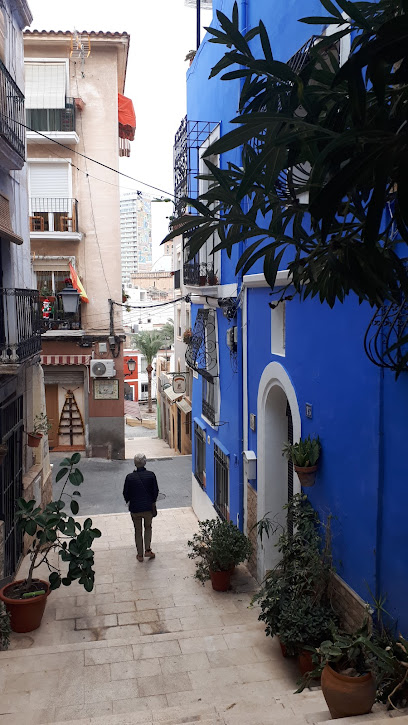
Antics murs d'Alacant
Explore the rich history of Alicante at Antics murs d'Alacant, where ancient walls reveal the city's captivating past and cultural heritage.
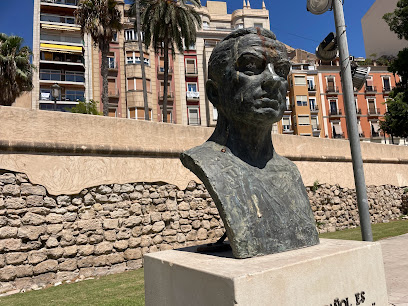
Unmissable attractions to see
Parc del Tossal
Explore the serene Parc del Tossal in Alicante, a perfect blend of nature and history offering stunning landscapes and recreational opportunities.
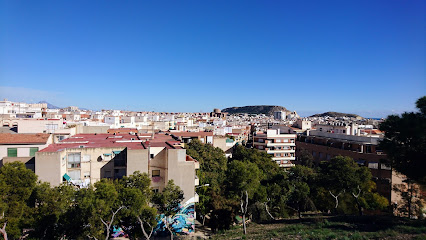
Castell de Sant Ferran
Discover the historic Castell de Sant Ferran in Alicante, where stunning architecture meets breathtaking views of the Mediterranean.
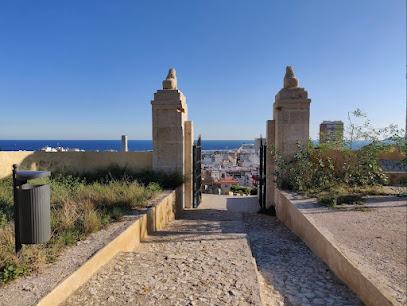
Museo de Aguas de Alicante – Pozos de Garrigós
Discover the fascinating history of water management at Museo de Aguas de Alicante, a unique museum that blends culture, education, and history in one captivating experience.
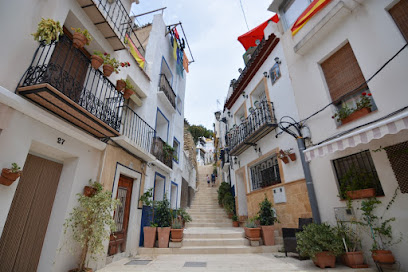
Essential places to dine
Nou Manolín
Experience authentic Mediterranean cuisine at Nou Manolín in Alicante - where exquisite tapas meet vibrant ambiance.
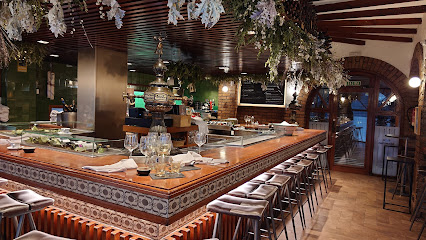
La Taberna del Gourmet
Discover the essence of Mediterranean cuisine at La Taberna del Gourmet in Alicante – where tradition meets innovation in every delicious bite.
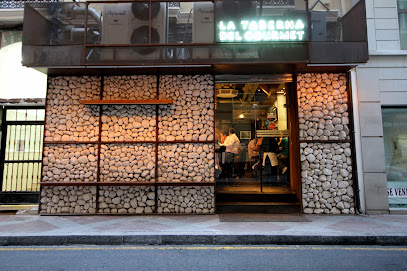
Mish Mish
Experience the vibrant fusion of Lebanese and vegan cuisine at Mish Mish in Alicante – where every meal tells a story.
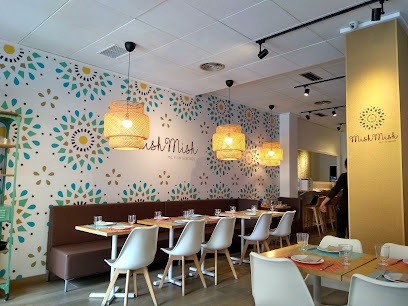
RESTAURANTE EL BUEN COMER
Experience the essence of Spanish cuisine at Restaurante El Buen Comer in Alicante – a culinary haven for food lovers.
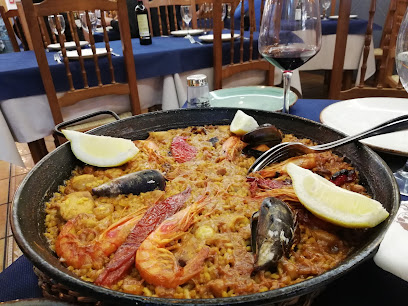
In Bocca Al Lupo Alicante
Discover the heart of Italy in Alicante at In Bocca Al Lupo - where every bite tells a story.
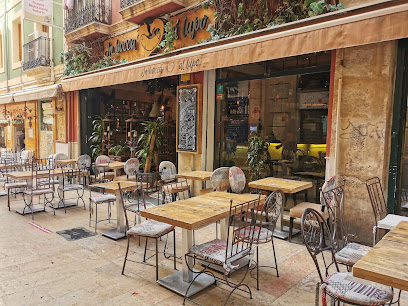
La Crispeta
Experience authentic Mediterranean flavors at La Crispeta in Alicante - where tradition meets modern culinary artistry.

San Telmo Gastrobar
Experience authentic Spanish cuisine with a modern twist at San Telmo Gastrobar in Alicante – where every dish tells a delicious story.
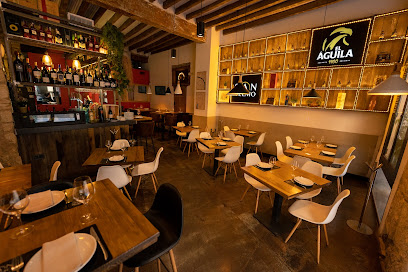
Alma del Sur
Experience authentic Andalusian cuisine at Alma del Sur in Alicante - where fresh seafood meets Mediterranean flavors.
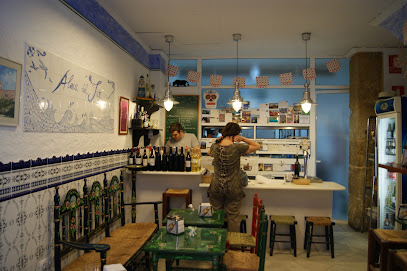
Restaurante L'Atelier
Discover the essence of Mediterranean cuisine at Restaurante L'Atelier in Alicante—where every dish tells a story.
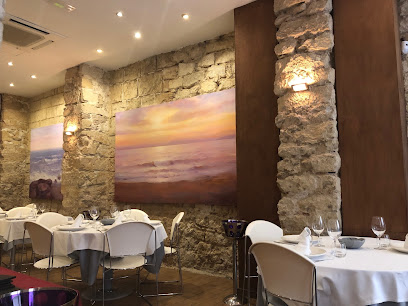
La Taberna Ibérica
Experience authentic Spanish cuisine at La Taberna Ibérica, where traditional flavors meet a warm atmosphere in the heart of Alicante.
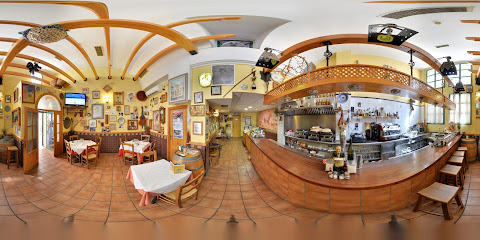
Markets, malls and hidden boutiques
ALE-HOP
Explore ALE-HOP in Alicante for a delightful selection of unique gifts, trendy fashion, and charming home goods, all in one vibrant shopping destination.
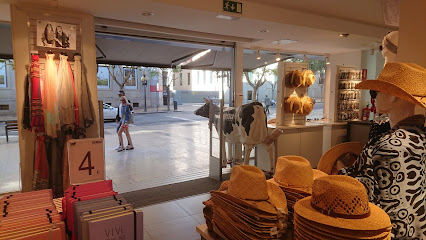
Stop And Look
Explore Stop And Look, your go-to souvenir store in Alicante for unique crafts and local treasures.
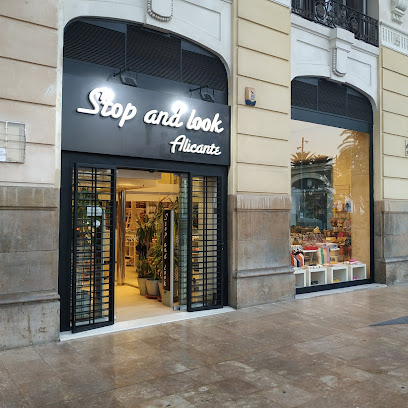
Pin-Up Vintage
Explore Pin-Up Vintage in Alicante for an unforgettable journey through fashion history with unique vintage clothing and delightful antiques.
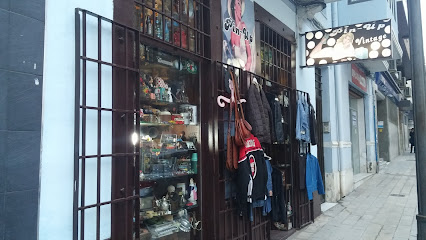
I LOVE ALICANTE
Explore unforgettable souvenirs and unique novelties at I LOVE ALICANTE, the ultimate shopping destination for travelers seeking a taste of local culture.
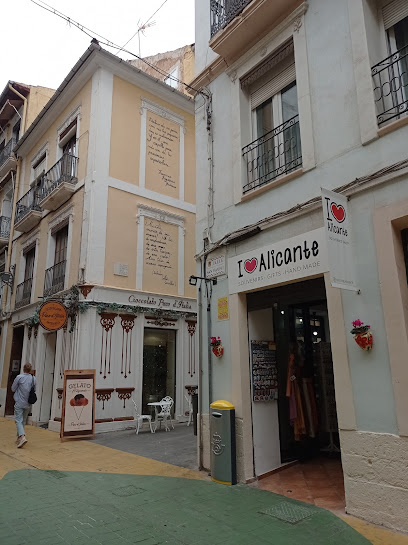
WeloveAlicante
Explore WeloveAlicante for unique local souvenirs and artisan crafts that embody the spirit of Alicante's rich culture and heritage.
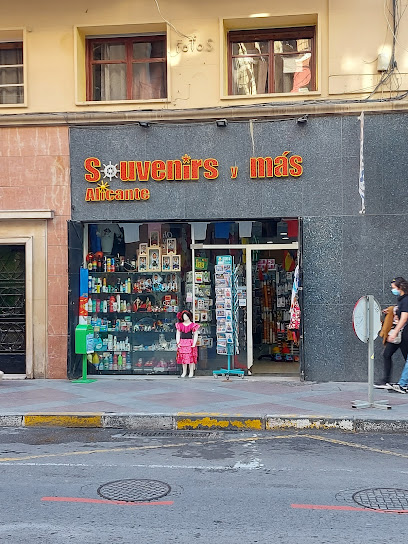
WE LOVE ALC - CHE PA' LANTE - TIENDA DE SOUVENIRS
Explore WE LOVE ALC - CHE PA' LANTE, a vibrant novelty store in Alicante offering unique souvenirs and gifts that capture the spirit of Spain.
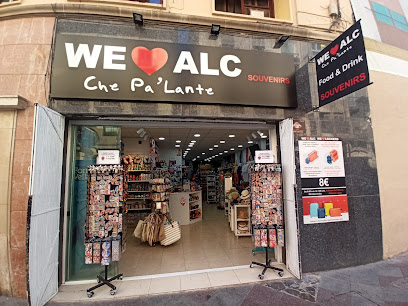
Boutique 27 Alicante
Boutique 27 Alicante: Uncover handcrafted jewelry treasures that embody the spirit of Alicante's vibrant culture.
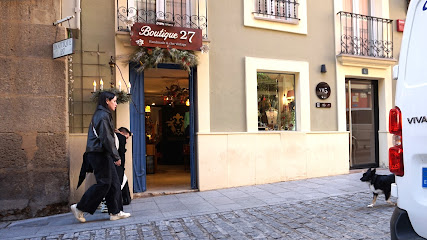
for you
Discover unique treasures and local handicrafts at this charming souvenir store in the heart of Alicante, perfect for memorable gifts.
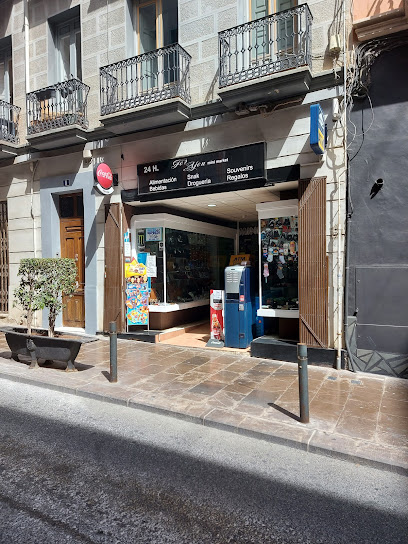
MOTHER SHOP ALCANTE
Explore Mother Shop Alicante for stylish fashion accessories that embody local flair and elevate your wardrobe.
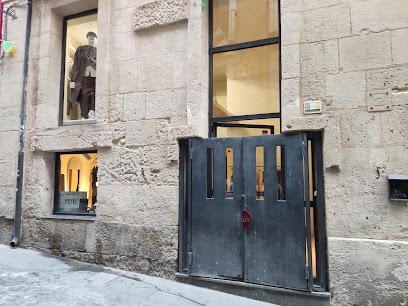
Encanto
Explore Encanto in Alicante for unique artisanal treasures that capture the spirit of Spain's vibrant culture.
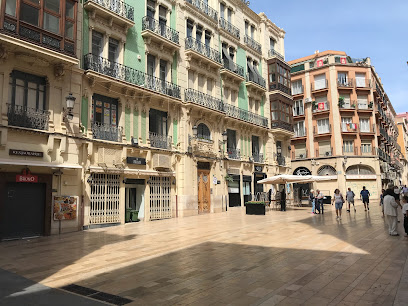
Essential bars & hidden hideouts
Sento Barrio
Experience the vibrant flavors of Spain at Sento Barrio, a charming tapas bar and restaurant in Alicante offering authentic dishes and a warm atmosphere.
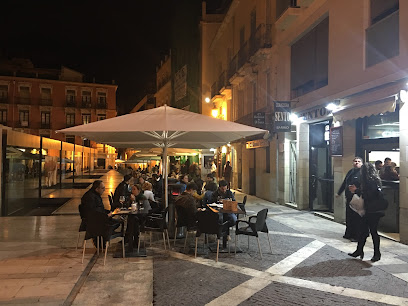
26 Cocktail Room
Experience the art of mixology at 26 Cocktail Room in Alicante, where innovative cocktails and a chic atmosphere await every visitor.
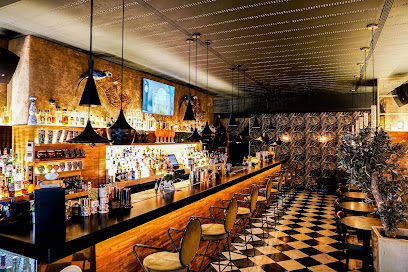
Ten 10
Experience the vibrant nightlife of Alicante at Ten 10, a lively pub with cocktails, coffee, and live piano music in a welcoming atmosphere.
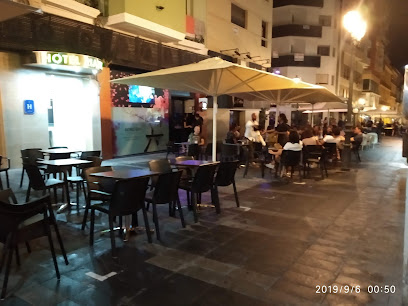
Eclipse music & cocktails
Experience Alicante's vibrant nightlife at Eclipse Music & Cocktails, where creative drinks and lively music create unforgettable evenings.
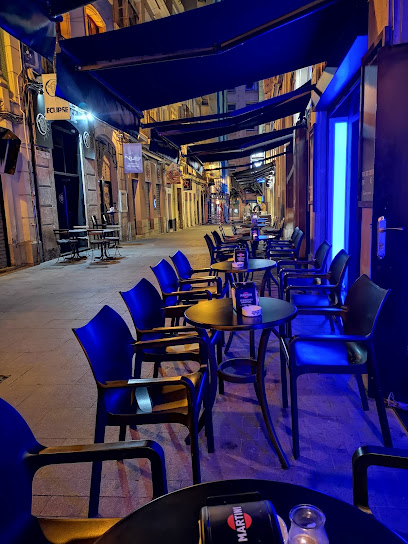
Munich - Alicante
Discover the lively ambiance of Munich - Alicante, where locals and tourists gather for drinks, music, and unforgettable nightlife experiences.
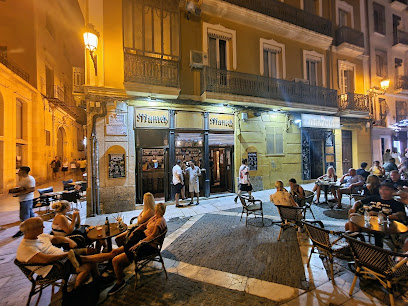
Pub Baccus
Discover Alicante's vibrant nightlife at Pub Baccus, where locals and tourists gather for a memorable evening filled with great drinks and lively ambiance.
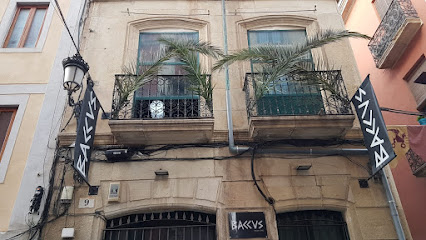
Pub Carabassa - Alacant, Alicante
Discover the lively Pub Carabassa in Alicante, where creative cocktails and a vibrant atmosphere await you. Experience local culture and socialize in style.
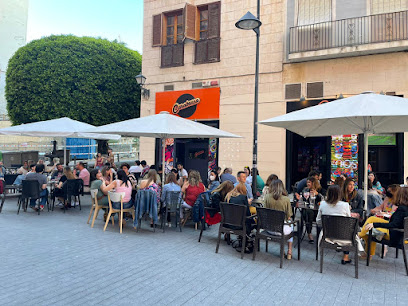
Divina Pub
Dive into Alicante's nightlife at Divina Pub, where vibrant energy meets excellent drinks in a cozy atmosphere.
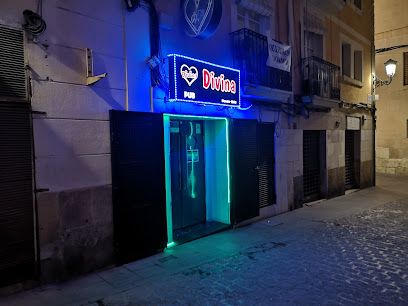
CARPE DIEM ALICANTE
Discover the lively ambiance of Carpe Diem Alicante, the ultimate pub experience in the heart of Alicante’s vibrant nightlife.
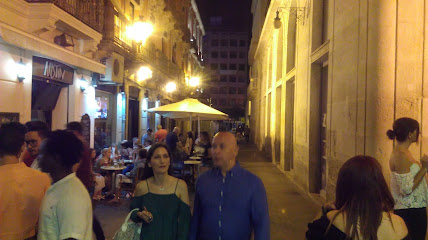
Amapola Pub
Experience the vibrant nightlife of Alicante at Amapola Pub, where locals and tourists come together for drinks, live music, and unforgettable memories.
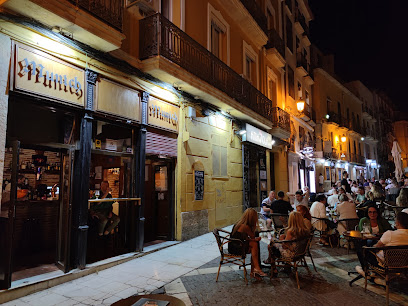
Local Phrases
-
- HelloHola
[oh-la] - GoodbyeAdiós
[ah-dee-ohs] - YesSí
[see] - NoNo
[no] - Please/You're welcomePor favor/De nada
[por fah-vor/deh nah-dah] - Thank youGracias
[grah-thyas] - Excuse me/SorryPerdón/Lo siento
[pehr-dohn/loh syen-toh] - How are you?¿Cómo estás?
[koh-moh ehs-tahs] - Fine. And you?Bien. ¿Y tú?
[byen. ee too] - Do you speak English?¿Hablas inglés?
[ah-blahs een-glays] - I don't understandNo entiendo
[noh ehn-tee-ehn-doh]
- HelloHola
-
- I'd like to see the menu, pleaseMe gustaría ver la carta, por favor
[meh goos-tah-ree-ah behr lah kahr-tah, por fah-vor] - I don't eat meatNo como carne
[noh koh-moh kahr-neh] - Cheers!¡Salud!
[sah-lood] - I would like to pay, pleaseMe gustaría pagar, por favor
[meh goos-tah-ree-ah pah-gahr, por fah-vor]
- I'd like to see the menu, pleaseMe gustaría ver la carta, por favor
-
- Help!¡Ayuda!
[ah-yoo-dah] - Go away!¡Vete!
[veh-teh] - Call the Police!¡Llama a la policía!
[yah-mah ah lah poh-lee-see-ah] - Call a doctor!¡Llama a un médico!
[yah-mah ah oon meh-dee-koh] - I'm lostEstoy perdido
[ehs-toy pehr-dee-doh] - I'm illEstoy enfermo
[ehs-toy ehn-fehr-moh]
- Help!¡Ayuda!
-
- I'd like to buy...Me gustaría comprar...
[meh goos-tah-ree-ah kohm-prahr] - I'm just lookingSolo estoy mirando
[soh-loh ehs-toy mee-rahn-doh] - How much is it?¿Cuánto cuesta?
[kwan-toh kwehs-tah] - That's too expensiveEs demasiado caro
[ehs deh-mah-syah-doh kahr-oh] - Can you lower the price?¿Puedes bajar el precio?
[pweh-dehs bah-hahr ehl pree-syoh]
- I'd like to buy...Me gustaría comprar...
-
- What time is it?¿Qué hora es?
[keh oh-rah ehs] - It's one o'clockEs la una
[ehs lah oo-nah] - Half past (10)Y media (las diez)
[ee meh-dee-ah (lahs dyehs)] - MorningMañana
[mah-nyah-nah] - AfternoonTarde
[tahr-deh] - EveningNoche
[noh-cheh] - YesterdayAyer
[ah-yehr] - TodayHoy
[oy] - TomorrowMañana
[mah-nyah-nah] - 1Uno
[oo-noh] - 2Dos
[dohs] - 3Tres
[trehs] - 4Cuatro
[kwah-troh] - 5Cinco
[theen-koh] - 6Seis
[says] - 7Siete
[syeh-teh] - 8Ocho
[oh-choh] - 9Nueve
[nweh-veh] - 10Diez
[dyehs]
- What time is it?¿Qué hora es?
-
- Where's a/the...?¿Dónde está...?
[dohn-deh ehs-tah] - What's the address?¿Cuál es la dirección?
[kwal ehs lah dee-rehk-syon] - Can you show me (on the map)?¿Puedes mostrarme (en el mapa)?
[pweh-dehs mohs-trar-meh (ehn ehl mah-pah)] - When's the next (bus)?¿Cuándo es el próximo (autobús)?
[kwan-doh ehs ehl proh-ksee-moh (ow-toh-boos)] - A ticket (to ....)Un billete (a ....)
[oon bee-yeh-teh (ah)]
- Where's a/the...?¿Dónde está...?
History of Casco Antiguo
-
The history of Casco Antiguo can be traced back to the Roman period when Alicante, known as Lucentum, served as a significant settlement. The remnants of Roman walls, baths, and other structures can still be found in the area, showcasing the importance of this location as a hub for trade and military activity.
-
Following the fall of the Roman Empire, the Moors took control of Alicante in the 8th century. The influence of Islamic culture is evident in Casco Antiguo's architecture, narrow winding streets, and the construction of the Santa Bárbara Castle. This period marked a significant cultural exchange that shaped the identity of the region.
-
In 1248, King James I of Aragon captured Alicante from the Moors, marking a pivotal moment in the history of Casco Antiguo. This event initiated the Christian reconquest of Spain, leading to the establishment of new religious and administrative structures in the area, including the construction of churches and the establishment of the local council.
-
The 16th and 17th centuries were a period of economic growth for Alicante, driven by trade, agriculture, and the burgeoning wine industry. Casco Antiguo flourished during this time, leading to the construction of many of its historic buildings, including the Co-Cathedral of San Nicolás, which reflects the wealth and aspirations of the city’s elite.
-
In the late 19th and early 20th centuries, Casco Antiguo underwent significant urbanization as Alicante expanded. The introduction of modern amenities and infrastructure transformed the neighborhood, while still preserving its historical essence. This period saw the establishment of public spaces and the renovation of many historic sites, integrating the old with the new.
Casco Antiguo Essentials
-
Casco Antiguo is centrally located in Alicante and can be easily accessed from other neighborhoods. If you are coming from the Alicante Airport, the best option is to take a taxi or a shuttle bus to the city center, which typically takes about 15-20 minutes. Alternatively, you can use the L1 tram line from the airport to the city. If you are in other neighborhoods like San Juan or El Pla, you can take a bus (lines 21 or C6) directly to the city center, from where you can walk to Casco Antiguo.
-
Casco Antiguo is a pedestrian-friendly neighborhood, making it ideal for exploration on foot. The narrow streets are best navigated by walking, allowing you to soak in the historical architecture and atmosphere. For longer distances, the local tram service (TRAM Metropolitano) connects you to other parts of the city, while local buses can be used for destinations further away. Bicycle rentals are also available, and many paths are suitable for cycling.
-
Casco Antiguo is generally safe for tourists, but standard precautions should be taken. Areas near the beach and less populated streets can be quieter at night, so it's advised to stay alert, especially after dark. Petty crimes such as pickpocketing can occur, particularly in crowded areas. Always keep an eye on your belongings, and avoid displaying valuables openly in busy places.
-
In case of an emergency, dial 112 for immediate assistance. Local hospitals and clinics are available in the city. Familiarize yourself with the nearest police station and hospital in the area. It’s advisable to have travel insurance that covers medical emergencies. Pharmacies are plentiful, and many offer a range of over-the-counter medications.
-
Fashion: Do wear comfortable shoes for walking on cobblestone streets, and dress modestly when visiting religious sites. Don't wear beachwear outside of the beach area. Religion: Do respect local customs, especially in churches; cover your shoulders and knees. Public Transport: Do validate your ticket before boarding trams and buses. Don't eat or drink on public transport. Greetings: Do greet with a friendly 'Hola' and a smile. Eating & Drinking: Do try local tapas and share dishes. Don't rush your meals; dining is a social experience.
-
To experience Casco Antiguo like a local, visit the Mercado Central for fresh produce and local delicacies. Participate in the evening paseo (stroll) along the waterfront for an authentic cultural experience. Engage with local shop owners and artisans, as they often share fascinating stories about the area. Don't miss the chance to visit the Santa Bárbara Castle for panoramic views of the city. Try to learn a few basic Spanish phrases, as locals appreciate the effort.
-
Alicante residents value politeness and friendliness. When interacting with locals, do make eye contact and offer a smile. It is customary to greet with 'Buenos días' (Good Morning) or 'Buenas tardes' (Good Afternoon). In restaurants, it is appreciated to say 'por favor' (please) and 'gracias' (thank you). During social gatherings, wait for the host to invite you to start eating.
Trending Landmarks in Casco Antiguo
Nearby Cities to Casco Antiguo
-
Things To Do in Murcia
-
Things To Do in Valencia
-
Things To Do in Teruel
-
Things To Do in Almeria
-
Things To Do in Oran
-
Things To Do in Palma de Mallorca
-
Things To Do in Tarragona
-
Things To Do in Toledo
-
Things To Do in Algiers
-
Things To Do in Madrid
-
Things To Do in Zaragoza
-
Things To Do in Lleida
-
Things To Do in Málaga
-
Things To Do in Tlemcen
-
Things To Do in Barcelona











